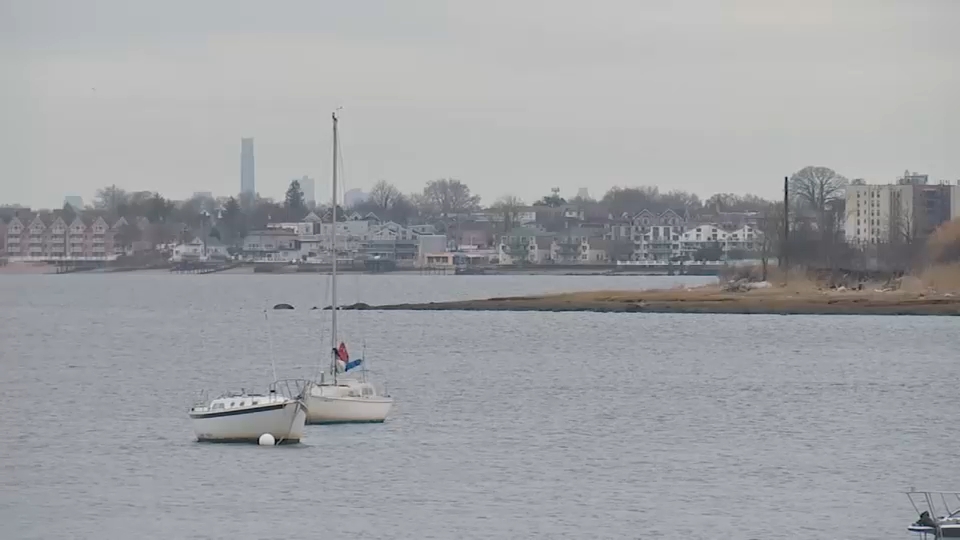USOC taps Boston as 2024 bid city

DENVER -- The Olympic rings flying over Fenway Park? Could happen.
U.S. Olympic leaders surprisingly cast their future with Boston on Thursday, hoping a compact, college-centric bid with a touching story to tell will overshadow the city's well-organized protest group and convince international voters to bring the Summer Games to America after a 28-year gap.
During a daylong meeting at the Denver airport, U.S. Olympic Committee board members chose Boston, with its promise of frugality, reusable venues and inspiration after its comeback from the marathon bombings, over Los Angeles, San Francisco and Washington for its 2024 bid.
"Today's selection by the USOC is the beginning of an incredible opportunity for Boston," said the city's bid chairman, John Fish, who will be part of a celebratory news conference Friday with the USOC leadership.
Boston joins Rome as the only other city that has officially decided to bid. Germany will submit either Hamburg or Berlin, with France and Hungary among those also considering bids. The International Olympic Committee will award the Games in 2017.
America's previous two attempts to land the Games resulted in embarrassments -- fourth-place finishes for New York (2012) and Chicago ('16).
The selection of one of the country's most history-steeped cities comes as something of a shock to insiders, who viewed two-time host Los Angeles as the safest choice and San Francisco as the sexiest. But a compact bid highlighted by a frugal spending plan -- along with Boston's energetic leadership team led by Fish, the construction magnate -- outweighed doubts that surfaced because of the city's organized protest group and less-than-perfect history in delivering big projects such as the Big Dig.
Boston Mayor Marty Walsh, who attended the bid presentations last month, said it was "an exceptional honor" to be chosen.
"This selection is in recognition of our city's talent, diversity and global leadership," the first-term mayor said. "Our goal is to host an Olympic and Paralympic Games that are innovative, walkable and hospitable to all. Boston hopes to welcome the world's greatest athletes to one of the world's great cities."
Fenway Park and its Green Monster would be part of the plan. The Boston Marathon course probably wouldn't (too downhill). But chances are there would be subtle references to the 2013 bombings near the finish line that killed three people -- a touching way to show how a city can pull together.
"The city has taught all of us what it means to be Boston Strong," the White House said in a statement. "The President and First Lady couldn't be prouder of this accomplishment and of all of our nation's athletes, and strongly support the effort to bring the 2024 Olympic and Paralympic Games to the United States."
Seeking to become the first American host for the Summer Games since Atlanta in 1996, Boston focused on its ability to use the more than 100 universities throughout the area to house events and athletes.
It touted a walkable, technology-based Olympics with an operating budget of less than $5 billion (considered frugal by Olympic standards). It said as many as 70 percent of its venues would not stand permanently, and a new main stadium might be shrunk to someday host a soccer team. Colleges might pay for many of the venues, then take them over after the Games.
"There's a lot of pre-existing infrastructure that's available" because of the colleges, USA Gymnastics president Steve Penny said. "That's one of the reasons Boston can work at a really high level."
Just as quickly as the celebratory statements were coming out, the protest group, No Boston Olympics, was revving up its own act, stressing that the state's priorities should include safe communities, quality education and responsible environmental policies.
"An Olympics ... threatens to divert resources and attention away from these challenges -- all for a chance to host an event that economists say does not leave local economies better off," the group said.
No Boston Olympics was the only protest group picketing outside the USOC meeting where the cities made their presentations last month, but USOC chairman Larry Probst was among those who said at the time that it was simply part of the bid business.
"Any time you're going to do something this big, there's going to be pockets of resistance," Penny said. "It doesn't matter which city is chosen."
Gov. Charlie Baker, who was sworn in earlier Thursday, said he would work to keep costs down and deliver on the promise of a privately funded Olympics.
"The history of the Olympics is that it always costs taxpayers," said Chris Dempsey, the protest group's co-chair. "It's especially concerning when they haven't released the bid. How are we supposed to take them at their word when we can't see the details?"
One task the USOC has to start on immediately is introducing Boston to the world. Though well-known for the marathon, it isn't a huge dot on the worldwide map. Often, however, that can work in a city's favor, as it gets to define itself rather than come in with tons of pre-existing notions.
Just as important will be the USOC's relationship with the rest of the world. It was not good six years ago, when Chicago took the hit with its last-place finish in a contest won by Rio de Janeiro. Recently, IOC president Thomas Bach outlined a new agenda that called for a more streamlined bidding process and future Olympics that didn't cost as much and didn't leave as many white elephants behind.
With a plan centering on colleges, compactness and frugality, Boston convinced the USOC it understood the vision.






